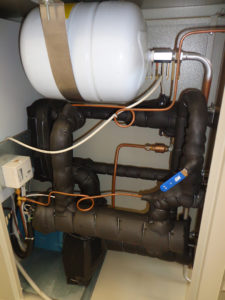Automotive test bench for engines, components and batteries
In the automotive sector there are several applications in which Tempco provide equipments, especially aimed for thermoregulation in engines test bench. Automotive test benches is a very sophisticated application, being employed for the simulation, testing and control of the performances of engines, a challenging task in terms of high precision in temperature regulation and quick response of the thermoregulation units.
For a Tempco customer, a producer of test bench control systems employed in the automotive sector and other sectors as well, we supply thermoregulation units aimed to heat the motor oil and/or the fuel and/or the several engine fluids involved in the testing. The test benches are employed in duration testing, the testing of performances and destructive testing of new generation automotive internal combustion engines.
These highly sophisticated thermoregulation units are able to ensure high performance levels of temperature control. The test bench application requires indeed quick response times reacting to the set-point variations forced by the test cycle and the stresses applied, in addition to maintaining the required temperature with a precision of +/- 1° C.
Pictured here below is in particular a thermoregulating unit we developed for an automotive components supplier, also specializing in the sector of electrification and electric powertrain.
Electrification in the automotive industry is setting a huge revolution toward sustainable mobility. The switch from the combustion engine to the new electric powertrain will bring several main transformations, leading to an increase of requests for new kinds of thermoregulation and cooling systems for electric engines and batteries test benches.
In this case the customer needed thermoregulating units for application in test chambers of several automotive accessories and systems. The units are in particular deployed for testing automotive components such as hydraulic power steering pumps, accessory systems for conditioning and sensors.
The test bench thermoregulating unit allows to fulfill testing activities in a wide range of temperatures from -30° C up to +130° C.




 Back to index
Back to index Download the complete book
Download the complete book